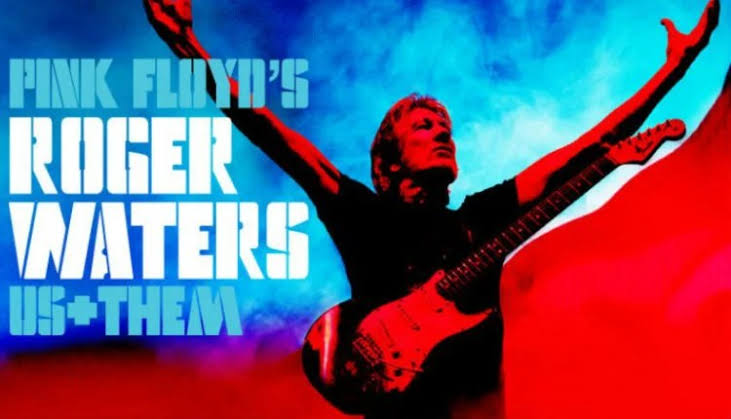
The one Pink Floyd album Roger Waters called perfect……

Released at the height of Pink Floyd’s creative and commercial success, The Dark Side of the Moon is an ambitious concept album that explores themes of mental illness, the passage of time, mortality, and the pressures of modern life. It marked a shift toward a more refined and polished sound for the band, blending progressive rock with elements of jazz, blues, and experimental music. The album’s use of synthesizers, tape loops, and sound effects was groundbreaking, creating an immersive listening experience that was both sonically rich and thematically deep.
Waters has expressed particular admiration for how the album’s themes are unified throughout its tracks, creating a sense of flow and continuity that makes the whole feel like one seamless piece of music. The lyrics, which delve into existential questions and the nature of human experience, are matched by the band’s innovative soundscapes, driven by David Gilmour’s soulful guitar work and Nick Mason’s atmospheric drumming. The iconic opening track, “Speak to Me,” transitions smoothly into “Breathe,” and the album continues to weave through songs like “Time,” “The Great Gig in the Sky,” and “Money,” each contributing to the overall narrative arc.
The album’s commercial success—spending over 14 years on the Billboard 200 chart—has cemented its status as a cultural touchstone. Its profound influence on rock music and its ability to resonate with listeners across generations are testament to its enduring power.
For Waters, The Dark Side of the Moon is a near-perfect realization of his vision, a work of art where everything fell into place in terms of concept, execution, and emotional impact. This high regard for the album stands in stark contrast to his often critical view of some of Pink Floyd’s later works, making his praise of The Dark Side even more significant.
You may also like
Related
Archives
Calendar
| M | T | W | T | F | S | S |
|---|---|---|---|---|---|---|
| 1 | 2 | 3 | 4 | |||
| 5 | 6 | 7 | 8 | 9 | 10 | 11 |
| 12 | 13 | 14 | 15 | 16 | 17 | 18 |
| 19 | 20 | 21 | 22 | 23 | 24 | 25 |
| 26 | 27 | 28 | 29 | 30 | 31 | |
Categories
- 2024 Australian Open
- 49
- 49ERS
- 49ers vs Lions
- 49ers vs. Chiefs
- 69ERS
- AFL
- AFLW
- American Football
- anonymous
- Arsenal
- Aston Villa
- AUSX 2024
- AUSX OPEN
- Baltimore Ravens
- Baseball
- Basketball
- Billionaires
- blog
- Books
- Boston Celtics
- Boxing
- Brisbane Bronco
- Buffalo Bills
- Canadian Football league
- Car Racing
- Caroline Panthers
- Celtics
- Championship
- Chelsea
- Chess
- Crystal Palace
- Cycling
- Dallas Cowboys
- Dallas Mavericks
- Dirt bike
- Djokovic
- Dodgers
- Dortmund
- Essendon Bombers
- Florida gators
- Football
- Fremantle Dockers
- Fullham
- general
- German Masters
- Giants pride
- Golden State Warriors
- Golf
- Hockey
- Houston Texans
- Indiana Fever
- Indiana Pacers
- Ipswich
- Ipswich Town
- Kansas city chiefs
- KYLE LARSON
- Lakers
- Larry bird
- LIFE STYLE
- LIFESTYLE
- Liverpool
- Los Angeles Dodgers
- Los Angeles Rams
- Mallas Cowboys
- Manchester city
- Manchester United
- Michealan Wolverines
- Michigan wolverine
- Michigan Wolverines
- Milwaukee brewers
- MLB
- MLB Aaron judge
- Motocross
- MotoGP
- Motorcross
- Music
- MXGP
- NASCAR
- NBA
- New England Patriots
- New Orleans pelicans
- Newcastle United
- NFC Championship
- NFL
- NFL Trade
- NHL
- Nottingham Forest
- Oil and Gas
- Olympic
- other
- Other Sports
- OU Softball
- PGA
- Philadelphia Eagles
- Philadelphia Flyers
- Philadelphia Phillies
- Pittsburgh Steelers
- Playoffs
- Racing
- Ravens smith
- Real Madrid
- Rugby
- San Francisco Fiants
- San Francisco Giants
- SEAL Team
- sevila
- Snooker
- Snooker Masters
- Sports
- St. Louis Cardinals
- Super Bowl LVIII
- Superbowl
- Supercross
- Ted Lasso
- Tennis
- TONY STEWART
- Toronto Raptors
- Tottenham Hotspur
- Tour de France
- Transfer News
- Uncategorized
- Video Games
- West ham
- Winnipeg Blue Bombers
- Wrexham
- WWE
Leave a Reply